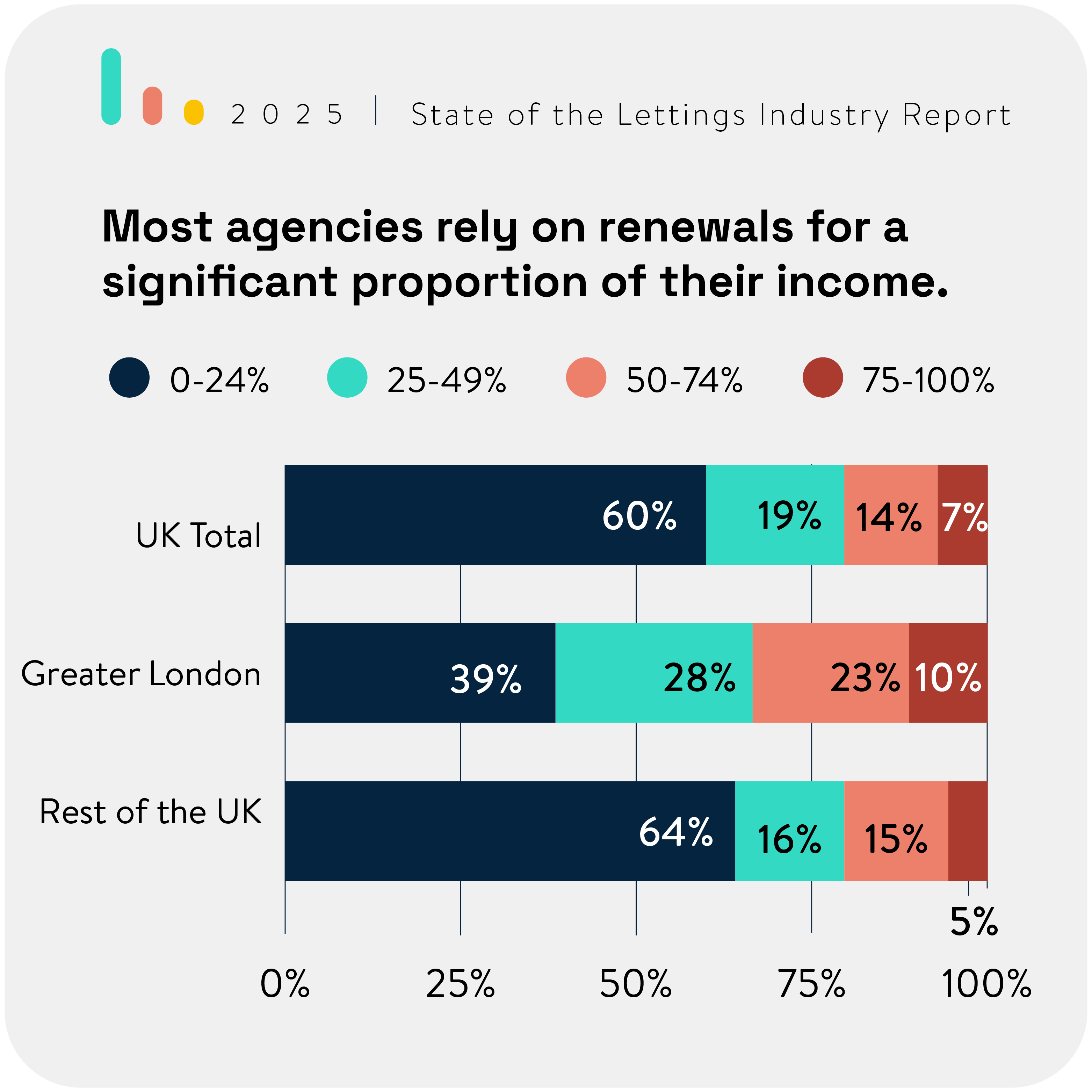Days
Hours
Minutes
Seconds
May 1 2026 - Renters' Right Act Commencement Day
You have 0 days to:
Serve any final Section 21 notices
Stop accepting above-asking rent offers
Prepare for the rental bidding ban
Remove “No DSS” from adverts
Remove “No Children” from listings
Show one clear rent price
Stop using fixed-term agreements
Switch to periodic tenancy templates
Check which tenancies go periodic
Stop taking rent before signing
Take no more than one month’s rent
Move all evictions to Section 8
Train staff on new notice rules
Create Section 13 process flow
Add two months to rent reviews
File court claims for Section 21s
Update landlord move-in grounds
Update landlord selling grounds
Send the RRA Information Sheet
Create written terms where missing
Update How to Rent processes
Review tenant screening questions
Update pet request processes
Stop backdating rent increases
Discuss rent protection backbooks
Act now before it is too late...
Renters' Rights Act 2026 guide: Implementation timelines, no-fault evictions, and more
The first implementation phase of the Renters' Rights Act will begin on May 1, 2026. Section 21 evictions will be abolished, and all ASTs will become periodic tenancies.
Oli Sherlock
Feb 11, 2026
Originally published: September 2024
The Renters’ Rights Act is the most significant reform to the private rented sector (PRS) since the Housing Act 1988. First introduced to Parliament on September 11, 2024, and achieving Royal Assent in October 2025, the Act has wide-ranging implications for landlords, tenants, and letting agents alike.
While the Act will generally improve standards across the Private Rented Sector, we may also have to deal with a few unintended consequences as the Act is rolled out.
The first phase of the Act is scheduled to take effect on May 1, 2026. You need to know everything about what's in store so you can set your agency up for success. While there will be challenges, there are also many opportunities to capitalise on.
In this blog, we’ll cover the key talking points, outline what's changing and what's not, and share ways you can best prepare your agency for what's coming.
-
- What is the Renters' Rights Act?
- Renters' Rights Act timeline: Phases 1, 2, and 3 explained
- The market impact: What Goodlord's data says about the Renters' Rights Act
- What happens next: Goodlord's Renters' Rights Predictions (2026)
- Modern solutions for new problems: How Goodlord can help
- Conclusion
- FAQs
What is the Renters' Rights Act?
The Renters’ Rights Act describes a piece of legislation designed to deliver “long overdue” reforms to the Private Rented Sector. Its primary goal is to give tenants greater security in remaining in their homes and greater freedom to leave substandard properties.
The Government believes this is necessary because: “While the majority of landlords provide a good service, the [Private Rented Sector] currently provides the least affordable, poorest quality and most insecure housing of all tenures.”
The Act will:
- Abolish Section 21 evictions - Social and private landlords will no longer be able to serve “no-fault” eviction notices to regain possession of their properties.
- Expand Section 8 possession grounds - The Government is adding and updating both mandatory and discretionary grounds following the abolition of Section 21.
- Abolish fixed-term assured shorthold tenancies (ASTs) - All fixed-term assured tenancies will become rolling, periodic contracts.
- Limit rent increases - The shift to periodic tenancies means Section 13 notices will be the only way for landlords to raise the rent; these can only be served once per year.
- Ban rental bidding wars - Landlords and agents can’t accept offers above the advertised price.
- Introduce a landlord ombudsman - This will help resolve disputes between landlords and tenants impartially.
- Create a Private Rented Sector database - Designed to compile information about landlords and properties and provide visibility on compliance.
- Apply the Decent Homes Standard - All rental properties must meet minimum quality standards.
- Prohibit discrimination - Discrimination against tenants on benefits or with children will be formally prohibited.
- Allow renting with pets - Landlords can't unreasonably refuse tenants with pets.
Renters' Rights Act timeline: Phases 1, 2, and 3 explained
The Renters' Rights Act essentially rebuilds legislation underpinning the Private Rented Sector from the ground up, but it won't all happen all at once. The Renters' Rights Act will be rolled out in three phases over the next couple of years. In this section, we'll go through each phase and explain what's happening when.
Phase 1 implementation - May 1, 2026
Phase 1 is the core reform stage of the Renters' Rights Bill, and contains some of the most headline-grabbing changes, including:
The end of fixed-term ASTs and new periodic assured tenancies
In a major shake-up to how renting has traditionally operated, assured shorthold tenancies, including fixed-term agreements, will be converted to assured periodic tenancies. Any fixed-term tenancies you sign now will be affected by this when the Act becomes effective. This means that tenancies will no longer have a fixed end date, and tenants will stay in the property until they or their landlord gives notice.
This will also change the notice periods required for tenants and landlords when they vacate or repossess the property. Landlords will have to give four months' notice, while tenants will only have to give two months' notice.
Tenancy reform is one of the Government’s top priorities, and it believes this move will “empower tenants to challenge bad practice without fear of retaliatory eviction”.
Learn how you can prepare your agency for these changes in our periodic tenancies blog.
The abolition of Section 21 no-fault evictions
In one of the biggest changes, landlords will no longer be able to use Section 21 notices to evict tenants. This had been a long-term policy goal of the Labour Government and is a major shake-up to the traditional landlord/tenant relationship.
Learn more about the abolition of no-fault evictions in our Section 21 blog.
Having previously relied on Section 21 notices as the main way to evict tenants, residential landlords and letting agents will now need to use Section 8 notices. These Section 8 notices must be supported by a specific "ground," meaning landlords must have a defined reason to evict their tenants.
After all, citing incorrect possession grounds will result in the courts rejecting your application, further delaying the eviction process.
What grounds can you use for Section 8 notices? Find out in our Section 8 blog.
Changes to rent increase notice periods
In a major change to the rental revenue model, landlords will be allowed to raise rents only once a year via a Section 13 notice. Previous rent review clauses in contracts, renewal processes, and mutual written agreements will no longer be valid.
Tenants can challenge rent increases in the First-tier Tribunal if they believe the increase is unfair or unreasonable. This could cause an uptick in court delays, as data from Goodlord's State of the Letting Industry 2025 report showed that 1 in 5 tenants would appeal any rent increases, whether or not they thought the increase was fair.
"Essentially, what we're now saying is that every single year, you have the opportunity to increase rents, and therefore you should. We can't forget that landlords have been under immense pressure themselves, and actually, their costs have risen in the same way that all of ours have, and all the tenants have." - Oli Sherlock, Managing Director of Insurance at Goodlord
Learn how to serve notices quickly and compliantly in our Section 13 blog.
Ban on rental bidding wars and limits on rent in advance payments
In an effort to stabilise market conditions and ensure fair rents, agents and landlords will no longer be allowed to accept offers above the asking price for their properties. This will put an end to the practice of "rental bidding wars." While the Government clarifies that most landlords don’t encourage rental bidding wars, it aims to “crack down on the minority of unscrupulous landlords who make the most of the housing crisis by forcing tenants to bid for their properties.”
What is a rental bidding war? Find out in our bidding war blog.
Additionally, the Act places limits on how much rent in advance letting agents and landlords may collect before the start of a tenancy. The traditional amount of six weeks' rent in advance will now be limited to one month. While this may help some tenants secure a property at a fair price, it could have unintended consequences for students, recent migrants, and people with poor UK credit histories.
How much rent in advance can you charge per tenancy? Learn more in our rent in advance blog.
Landlords can no longer unreasonably deny a pet request
One of the most publicised parts of the Renters' Rights Act has been the changes around pets in lets. Tenants will have a formal right to request to keep a pet in their rental. Landlords must not refuse the request "unreasonably" and respond to all requests within 28 days.
When can you refuse a tenant's request to keep a pet? Find out reasonable grounds and more in our dedicated renting with pets blog.
Housing discrimination ban expands the list of protected characteristics
Anti-discrimination measures in the Act mean that landlords and letting agents will no longer be able to deny properties to tenants with families or to those in receipt of benefits. This will end the practice of "no DDS" rental discrimination in property listings.
Could you be inadvertly commiting rental discrimination? Learn practical tips to avoid discrimination in the Private Rented Sector blog.
Increase enforcement powers for local councils
On December 27, 2025, local housing authorities received enhanced investigatory powers and stronger enforcement actions for non-compliance with Private Rented Sector regulations. This means local councils can now pursue bad actors with greater vigour and impose harsher financial penalties of up to £40,000 where appropriate.
While many of the new rules are subject to local councils' own policies, the Ministry of Housing, Communities and Local Government has issued guidance on how these powers should be used. For example, local authorities no longer have to issue informal warnings for suspected breaches and can now pursue formal actions from the get-go.
What's the Government guidance on new local authority enforcement councils? Read the full list here.
Phase 2 implementation - Late 2026 onwards
Phase 2 of the Renters' Rights Act implementation will begin in late 2026 and introduces new Private Rented Sector infrastructure and dispute resolution processes.
Introduction of the Private Rented Sector Database
Part of the Government's aim with the Renters' Rights Act is make landlords more accountable to their tenants. This new database will act as a hub of information about the Act, and a register for landlords.
Much like how UK companies must register on Companies House, landlords will be required to register on the PRS Database. This will include paying a fee to maintain the service, and providing basic information about themselves and their properties, such as their contact information and Energy Performance certificates.
What information will be held in the database? Find out on our PRS Database blog.
The establishment of the Private Rented Sector Landlord Ombudsman
Following its first proposal in the last Conservative Government's Renters (Reform) Bill, the PRS Ombudsman will be implemented in late 2026. This scheme is intended to help ease the increased court burden of the new legislation and to provide a landlord and tenant dispute resolution service.
Much like the PRS Database, all landlords will be required to register with the scheme and pay a fee to help maintain the service. This is regardless of whether the landlord personally manages their properties or uses an agency management service.
Find out what the Private Rented Sector Landlord Ombudsman means for you in our informative blog.
Phase 3 - 2027-2035
Phase 3 of the Renters' Rights Act will be implemented over the next decade and focuses on improving the housing stock nationwide.
Awaab's Law will be expanded into the PRS
Awaab’s Law has already been introduced into the social housing sector as part of the Social Housing (Regulation) Act and will expand into the PRS as part of the Renters' Rights Act.
It means landlords must follow strict timescales to inspect and repair hazards, such as damp and mould. The Government has claimed that the introduction of this law will “ensure that all renters in England are empowered to challenge dangerous conditions”.
Addressing hazards quickly and efficiently has never been more important. Find out how you can do it in our Awaab's Law blog.
The Decent Homes Standard will be applied to all rental properties
The new and updated Decent Homes Standard will be applied to private rented properties from 2036. This will standardise a level of housing quality across the entire sector and improve overall living standards for tenants.
The Government has already released the official guidance on what makes a "decent" home. Failure to bring properties up to standard by 2036 could see landlords hit with massive fines.
How can you make your rental property decent? Learn more in our Decent Homes Standard blog.
The market impact: What Goodlord's data says about the Renters' Rights Act
While the Renters' Rights Act brings many much-needed reforms and tenant protections to the PRS, its ripple effect on agents and landlords shouldn't be understated.
In Goodlord's State of the Lettings Industry report, fresh data from across the sector paints a mixed picture as the Act becomes law.
Periodic tenancies threaten agency revenue streams
With the end of fixed-term tenancies, agencies risk losing a key income driver.
Renewals currently account for an average of 27% of total agency revenue, rising to 37% in London, where long-term tenancy renewals are more common and property values are higher.
Once all tenancies convert to periodic, those reliable renewal fees will disappear.
Rent disputes set to surge as tenant confidence grows
Under the new legislation, tenants will gain expanded powers to challenge rent increases via Section 13 and the First-tier Tribunal. Early polling shows that 22% of tenants plan to appeal rent increases, regardless of whether they consider the increase fair, testing the system from day one.
“I think the administrative process there is difficult, and I think the emotional toll is difficult for agencies, because tenants will feel very passionate about this and understand they have free rein to appeal. Landlords will feel very passionate about this and understand that tenants have free rein to appeal. So I think this is going to be a stress point.” - Oli Sherlock, Managing Director of Insurance at Goodlord
The end of bidding wars may push asking rents higher
The ban on rental bidding aims to improve fairness, but could introduce new pricing behaviours. One in five landlords (20%) say they’ll compensate by advertising properties at a higher initial rent, anticipating a downward negotiation.
Meanwhile, over half (53%) plan to research comparable listings to establish their price point, and 19% will rely on their agent's advice.
In other words, those who advertise higher will drive rents up for the rest of the market.
A skills divide in possession management
With Section 21 being abolished, agents’ ability to use Section 8 grounds correctly becomes vital. Yet data shows a steep learning curve ahead:
- 50% of larger agencies (51-100) staff report serving Section 8 Notices "somewhat or very regularly."
- In contrast, 43% of sole operators say they have never served one.
This divergence highlights a looming compliance gap. Smaller agencies will need urgent training and legal support to manage possession cases confidently under the new regime.
Vulnerable tenants may face unintended consequences
The ban on rent in advance could disproportionately affect tenant minority groups.
Two in five renters have paid more than a month’s rent upfront, and 42% did so simply to “beat the competition.” Without the ability to offer advance payments, these tenants may struggle to secure homes in a competitive market.
Agents will need to work closely with landlords to identify fair, compliant alternatives, such as guarantor arrangements or deposit replacement schemes, to ensure inclusivity doesn’t inadvertently reduce access.
“We know the rationale is that it’s there to prevent people from being priced out of the market by competitive advantage. But when I look across our businesses, which primarily deal with overseas landlords marketing properties, typically tenanted by overseas tenants who come to the UK, who probably don’t have a UK bank account at first. Whereas they would have been sound paying their rent in advance in a property type that is quite ring-fenced for them…Suddenly, that market doesn’t work.” - Lucy Jones, Former Chief Operating Officer at Lomond
Readiness remains uneven across the sector
When asked how ready they feel for the Renters’ Rights Act, the industry revealed stark contrasts:
- 47% of agencies with 11+ staff describe themselves as "very prepared." Only 4% of sole operators say the same.
- Among smaller agencies (2-10 staff), only 23-27% report feeling confident about the coming changes.
This uneven preparedness underscores the need for targeted education, technology adoption, and resource sharing across the lettings community. The most agile agencies will be the ones that thrive as the Act becomes law.
What happens next? Goodlord's Renters' Rights Act Predictions (2026)
At Goodlord, we've been telling our customers from the beginning that the Act is a reality they must prepare for. At the end of 2025, we asked some of our experts at the company to share their 2026 predictions.
Here's what our team thinks the next year holds for the PRS and the Renters' Rights Act:
William Reeve, CEO
“In 2026, I think the UK PRS is set to experience a Big Bang moment, a regulatory or market shock as big as anything we’ve seen since the 2019 Tenant Fee Ban. Initially, the aftermath may feel quiet, leading some to say, ‘See? The doom-mongers were wrong.’ But this is just the calm before the storm: it will take time for new processes, notice periods, and market adjustments to play out. Within one to two years, the full impact will be clear, and those early warnings will have been well-founded.”
Tom Goodman, Managing Director
“In my opinion, 2026 will be the year the PRS decisively reorders itself as the RRA thrums into life. With the Act live and operational, the market will move beyond speculation and into reality. The winners and losers will become clear not on May 1, but in the months that follow.
“The dominant theme will be accelerated consolidation through professionalisation rather than withdrawal. Regulatory pressure, increased compliance complexity and sustained margin squeeze will make self-management far less attractive for many smaller and accidental landlords. As a result, a higher proportion of landlords will turn to agents to manage risk, compliance and operational burden on their behalf. The market will increasingly favour either scaled, systemised operators able to absorb regulatory cost efficiently, or focused specialists with a clear niche and value proposition. The traditional “generalist, low-margin” model will become progressively harder to sustain.”
Mouna Patel, Major Accounts Consultant
“The ongoing rollout of the Renters' Rights Act will completely reshape the Private Rented Sector through 2026. Beyond headline changes to tenancy structures, the real impact for agencies will be how they adapt revenue models and manage growing compliance demands.
“From safety checks to transparency rules, agents will need to replace traditional renewal income with smarter service packages. Charging for services like automated compliance admin may become standard. Still, the bigger opportunity lies in offering value-led add-ons like rent and legal protection, compliance audits, and enhanced tenant communication tools. Even the most independent landlords may be persuaded to shift to fully managed services.”
To read the full list of insightful predictions, read our 2026 predictions blog here.
Modern solutions to new problems: How Goodlord can help
The upheaval the Renters' Rights Act will cause in the Private Rented Sector cannot be understated. As we've detailed in this blog, almost every aspect of the industry will see fundamental changes. At Goodlord, we've built a platform that will help you survive and thrive under the new legislation.
Our comprehensive lettings technology platform streamlines processes, automates compliance tasks, and reduces your overall admin burden. From tenant referencing and contract management to rent collection, our system centralises every stage of the lettings journey.
One key advantage for agents and landlords is that Goodlord’s contract management tools use legally-verified templates that are automatically updated to reflect new legislation, helping ensure tenancy agreements remain compliant as fixed-term ASTs transition to periodic tenancies under the Renters’ Rights Act. The platform also integrates mandatory PEPs and sanctions checks into the tenant referencing workflow, which is essential compliance work for agents dealing with evolving regulatory obligations.
Goodlord’s rent protection and legal expenses insurance provides an additional layer of support during the Act’s implementation, covering up to 100% of rent until vacant possession if eviction processes are delayed, which will be an evermore likely consequence of abolishing Section 21 no-fault notices and relying on Section 8 grounds. This product helps landlords safeguard income and reduces risk for agents managing rent arrears in a more complex eviction landscape.
Conclusion
The Renters’ Rights Act marks a clear line in the sand for the Private Rented Sector. From May 1 2026, the rules that have governed lettings for decades begin to fall away, replaced by a system built around longer-term security for tenants, tighter accountability for landlords, and higher expectations for agents.
For some, that change will feel uncomfortable. The loss of fixed-term tenancies, the abolition of Section 21, new limits on rent increases, and stronger enforcement powers all introduce friction into familiar processes. As the Tenant Fee Ban reshaped the market in 2019, the Renters’ Rights Act will again separate those who react too late from those who adapt early.
The agencies and landlords who succeed won’t be the ones waiting for perfect clarity or hoping the impact will be minimal. They’ll be the ones investing now in training, systems, and processes that reduce risk, improve compliance, and deliver better experiences for tenants and landlords alike. They’ll rethink revenue models, professionalise property management, and leverage technology to absorb the growing administrative load.
If you'd like to know more about how Goodlord will help you with the Renters' Rights Act, click the link below:
FAQs
Below, we've compiled an FAQ on some of the finer points of the Act that may not have been covered in the blog.
General
When did the Renters' Rights Act become law?
The Act achieved Royal Assent on October 27, 2025, which made it law in England.
Renters' Rights Act vs Renters (Reform) Bill: What's the difference?
| Renters (Reform) Bill | Renters' Rights Act | |
| Abolish Section21 |
✅ With court reform |
✅ Without court reform |
| Expand grounds for possession | ✅ | ✅ |
| Decent Homes Standard | ✅ |
✅ Plus Awaab's Law |
| Limit rent increases to once per year | ✅ | ✅ |
| Prohibit rental discrimination | ✅ | ✅ |
| Allow renting with pets | ✅ | ✅ |
| Introduce a landlord ombudsman | ✅ | ✅ |
| Ban rental bidding wars | ❌ | ✅ |
| Create a PRS database | ✅ | ✅ |
| Strengthen enforcement of non-compliance | ✅ | ✅ |
The Renters (Reform) Bill is the predecessor of the Renters’ Rights Act, which explains why they look so similar.
The former was conceived by the Conservative Government towards the end of their term, but didn't pass before they were defeated by Labour in the General Election. It proposed to:
- Abolish Section 21, but not before reforming the court system to deal with the increased volume of Section 8 notices.
- Introduce more robust Section 8 grounds for possession for landlords to account for the abolition of Section 21.
- Apply the Decent Homes Standard to rental properties.
- Limit rent increases to once per year.
- Prohibit discrimination against families or benefit recipients.
- Make renting with pets easier to help improve tenants' mental health and ease the abandoned pet epidemic.
- Introduce a landlord ombudsman to help resolve disputes.
- Create a PRS database to improve transparency and track compliance.
- Strengthen enforcement of non-compliance to raise standards and increase accountability.
The latter was proposed by the new Labour Government, building on the above by banning rental bidding wars.
The Renters’ Rights Act will also abolish Section 21 without court reform and apply Awaab’s Law to the Decent Homes Standard.
Learn more in our Renters' Rights Act vs Renters (Reform) Bill blog.
Section 21
Will there be any transition period or a cut-off date for existing Section 21 notices?
The Government is expected to provide a slightly longer transition period than the standard two months after the Renters’ Rights Act and becomes law.
On the commencement date, all ASTs will automatically convert into assured periodic tenancies, meaning no new Section 21 notices can be served.
What will happen to existing Section 21 notices that have already been served or are in court?
If a Section 21 notice has been served before the Renters Rights Act is enacted, landlords will have up to two months after the commencement date to apply to the court, as long as the notice is still within its six-month validity period.
Section 8
What new grounds will be available under Section 8 for possession?
The Government has provided a range of new and updated mandatory and discretionary eviction grounds for Section 8. These include:
Mandatory
- Ground 1 - If the landlord or a family member wishes to move into the property, this can only be done after the tenancy has exceeded 12 months.
- Ground 1A - If the landlord intends to sell the property, this can only be used after the tenancy has exceeded 12 months.
- Ground 2ZA - 2ZD - If the leasehold has ended and the landlord does not own the freehold.
- Ground 4A - For student landlords not affiliated with an educational institution who need the property for new student tenants before the academic year starts.
- Ground 6A - If the landlord needs possession to comply with enforcement action.
- Ground 8 - If the tenant is at least three months in arrears (or 13 weeks if rent is paid weekly or fortnightly).
Discretionary
- Ground 14A - Social landlords can evict a perpetrator of domestic violence if the victim has fled.
- Ground 14ZA - If the tenant or adult at the property has been convicted of an indictable offence during a UK riot.
- Ground 18 - The tenancy is for supported accommodation, and the tenant refuses to engage in support.
What happens if a landlord wishes to repossess a property for an employee or family member?
The new Section 8 grounds include provisions for landlords wanting to move back into their property. This has been expanded to allow not only the landlord but also their children to move in. However, landlords must give tenants four months’ notice and can only serve the notice after a minimum 12-month tenancy period.
How will the transition work for Section 8 in ongoing tenancies?
From May 1, 2026, all ASTs will automatically become periodic overnight tenancies. Section 8 will be the primary means of evicting tenants, so landlords must rely on the newly expanded grounds for possession.
Fixed-term and periodic tenancies
What will tenancy agreements look like under the new framework?
The Government has the power to dictate the format of tenancy agreements. It is expected to introduce a new standardised agreement that incorporates elements of the current tenancy agreement and the “How to Rent” guide.
It’s unclear whether existing tenancy agreements will need to be redrafted immediately, and there may be a grace period for transitioning to the new format.
Do these changes apply to corporate tenancies or company lets?
No, corporate tenancies are not subject to the new rules in the vast majority of cases.
Student rentals
Will student landlords be allowed to set fixed end dates?
The only wiggle room given to student landlords so far is the addition of ground 4A in Section 8, and the fact that private, purpose-built student accommodation (PBSA) won’t have to use periodic tenancies.
How will landlords mitigate summer void periods?
This remains a major concern. Without fixed terms, tenants could leave at any time, making it harder to manage void periods between academic years. The industry has raised concerns, but there are no confirmed exemptions or solutions yet.
Rent increases and Section 13 notices
How will the Section 13 rent increase process work?
From May 1, 2026, periodic tenancies will replace all fixed-term tenancies. Put simply, this means landlords can raise the rent only through Section 13 notices, and you can serve only one per year.
Previously, landlords only needed to give one month’s notice of a rent increase in a Section 13. Under the new legislation, however, they must provide two months’ notice.
Will annual rent increases need to be agreed at the outset?
No, landlords won’t be required to set annual rent increases at the outset of a tenancy. Rent increases must follow the Section 13 process, in which the landlord gives the tenant notice of the increase, and the tenant has the right to challenge it before a tribunal.
The Government is not imposing fixed rent increase clauses in tenancy agreements as it stands.
You can serve a Section 13 notice up to four months in advance, provided the rent increase becomes effective after the tenant has spent 12 months in the tenancy. At a minimum, you must give two months’ notice of a rent increase.
Will rent increases be backdated if challenged?
It depends. This is a key concern raised by members of both the House of Commons and the House of Lords, as well as industry experts. The Government accepted an amendment that would allow them to backdate rent increases if the FTT became inundated with cases, but this is viewed as a last resort.
How will the affordability of rent be tested for periodic tenancies?
The Government has acknowledged affordability concerns, especially in outer London and the Home Counties, where rents are still increasing. However, there are no specific new affordability tests for periodic tenancies beyond standard referencing checks.
Pets in lets
What would be a reasonable excuse not to accept pets?
Under the Renters’ Rights Act, landlords will have a few reasonable grounds for refusing to accept pets. These include:
- If the property is unsuitable for pets (size concerns, lack of adequate outdoor space, etc.)
- Lease restrictions from the freeholder
- Responsible pet ownership concerns
- Anti-social behaviour
What happens if there is a head lease clause that prohibits pets?
If a head lease specifically includes a “no pets” clause, this right remains enforceable, meaning a landlord in such a property can refuse pets without violating new pet-friendly provisions. In these cases, landlords can still advertise properties as “no pets allowed” and refuse tenants with pets at the application stage.
Can landlords charge extra fees or deposits for tenants with pets?
No, landlords can’t charge pet fees under the Tenant Fees Act 2019. The Government also removed the option for landlords to require tenants with pets to take out pet damage insurance. The Government’s stance is that the standard deposit should cover pet-related damage.
What if a tenant has a pet despite a no-pet clause?
If a tenant moves in with a pet despite a valid no-pet clause, the landlord can either take action for breach of contract or seek resolution through the redress scheme or court.
What happens if a tenant requests a pet after moving in, despite being refused at the start of the tenancy?
If the tenancy was originally an Assured Shorthold Tenancy (AST) and later transitions to the new periodic tenancy under the reform, landlords may be required to reassess the pet request. If the property is deemed suitable for pets, the landlord may not have grounds to refuse.
Legal and compliance considerations
Will existing tenancies require new agreements or addenda, now that the Act has become law?
It is not yet confirmed whether existing tenancies will require formal amendments. The transition will be automatic, meaning all ASTs will convert into periodic tenancies. The Government may introduce a notification process, but full contract amendments have not been confirmed.
Whatever happens, the Government is keen to avoid a two-tier system where different groups of tenants have different rights packages.
How will agents ensure compliance with the new rules?
Lettings software like Goodlord helps you automate your compliance processes. Training staff and updating fee structures is essential, as renewal fees will no longer be viable.
What happens to deposits and tenancy deposit scheme obligations?
The current tenancy deposit rules remain unchanged under the new system, meaning you can still take them in advance. Deposits must still be protected in approved schemes.
Will agents need to hand over the keys to tenants, even if they haven’t paid their first month’s rent?
Yes, agents may be required hand over keys even if the first month’s rent hasn’t been paid. The new regulations require tenancy agreements to be signed before rent is collected, giving tenants the legal right to occupy the property regardless of payment.
This means agents may have to release the keys even if rent hasn’t cleared, creating a risk that tenants will move in while in arrears. While this aims to protect tenants from unfair practices, it increases financial risks for landlords and agents if tenants fail to pay on time.
Can an agent delay executing a tenancy agreement until funds are received?
No, under the new rules, funds cannot be required before the agreement is executed.
Landlord and letting agent business impacts
How will agents continue to charge fees without fixed-term renewals?
You can’t charge renewal fees since fixed-term tenancies are being abolished. Instead, you should revise your fee structures and communicate these changes to landlords ahead of time.
What alternative revenue streams will be available for agents post-reform?
Charging for a Section 13 notice is one potential option agents should explore to help replace renewal revenue. Offering Rent Protection and Legal Protection services can also help plug the gap.
Will landlords need legal support for every eviction process?
While legal support won’t be mandatory, letting agents and landlords should have a thorough understanding of the new Section 8 eviction grounds, as they will become the primary tool for regaining possession. If you cite the wrong eviction grounds, courts will throw out your application, further delaying an already cumbersome process.
How will mediation requirements affect eviction proceedings?
The Government is proposing a redress scheme, but there are concerns that it may not be efficient, given the Housing Ombudsman's poor track record of handling disputes quickly.
This article is intended as a guide only and does not constitute legal advice. Visit gov.uk for more information.
.gif)







